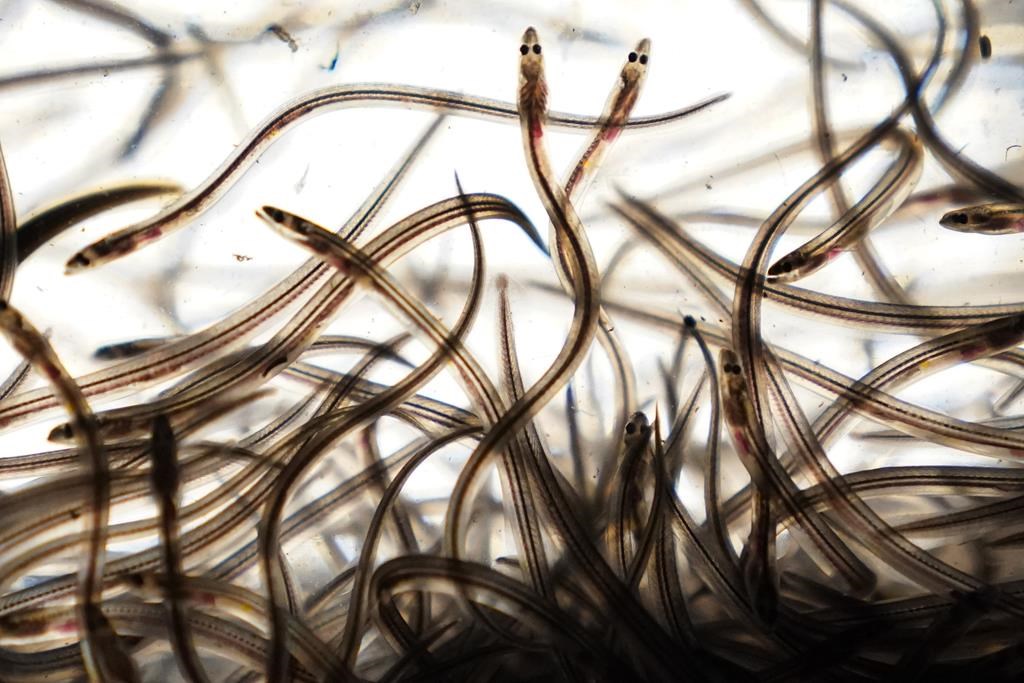Officials seize around $500,000 worth of elvers from Toronto Pearson Airport

A major seizure of baby eels at Toronto’s Pearson International Airport that federal officials say was destined for shipment overseas is estimated to be worth between $400,000 and $500,000.
The seizure of 109 kilograms of elvers was carried out on Wednesday by the Department of Fisheries and Oceans and the Canada Border Services Agency.
“Our message is crystal clear: do not travel to Nova Scotia to illegally fish or export elvers this year, enforcement officers will be waiting for you,” said Fisheries Minister Diane Lebouthillier in a statement Friday.
Advertisement
The federal government closed the lucrative elver fishery on March 11 after violence and intimidation plagued last year’s fishing season in Nova Scotia and New Brunswick.
The baby eels are worth about $5,000 per kilogram — more than lobsters, scallops or salmon — making them the most valuable fish by weight in Canada.
Elvers weigh just a few grams and are less than 10 centimetres long. The baby eels, sometimes called glass eels, are typically flown to Asia where they’re raised to maturity and sold for food and used in unagi dishes at sushi restaurants.
Federal data shows 149 people have been arrested for elver-related crimes, and nearly 208 kilograms of elvers have been seized so far this year.
In late April, Stanley King of Atlantic Elver Fishery said a string of recent arrests for illegal fishing is an early sign the federal government has increased enforcement since it closed the baby eel fishery.
Advertisement
That month the federal Fisheries Department arrested five people from Maine for illegal fishing in Meteghan, a community in Nova Scotia’s Digby County.
Department officials have “upped their game,” said King, who is among the commercial fishers who have criticized the federal government in recent years for what they said was a soft approach to poaching.
Elvers are fished at night from coastal rivers in Nova Scotia, New Brunswick and Maine. They are harvested in the springtime as they return to the rivers from their ocean spawning areas. The slippery fish can be harvested using minimal equipment, often with a bucket and a fine, funnel-shaped net called a fyke net or a dip net.